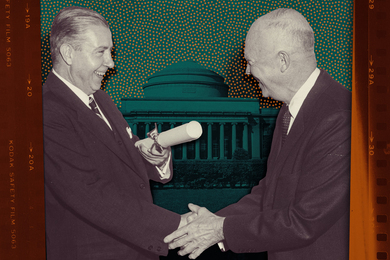The Lemelson–MIT Program, a nationally renowned invention recognition and educational outreach program, announced it will expand its 10-year commitment to inspiring our nation's next generation of inventors in partnership with The Lemelson Foundation. This Commitment to Action was announced at the 2013 Clinton Global Initiative (CGI) America annual meeting.
The Lemelson-MIT Program will launch a Junior Varsity (JV) InvenTeam Initiative in Spring 2014, offering an unparalleled opportunity for underserved and underrepresented students in grades 9 and 10 to develop skills through prescribed design challenges. Further, students will practice inventive thinking by applying those new skills to create useful and unique products. Since the JV InvenTeam Initiative targets students and educators at high free and reduced-price meal (FRPM) schools, the Lemelson-MIT Program can provide skill-building opportunities to students in grades 9 and 10 who have the most to gain from future hands-on STEM activities when they reach grades 11 and 12.
The JV InvenTeam Initiative will be piloted in Massachusetts and Texas, with plans to extend outreach to California and the Pacific Northwest in 2015. The program builds upon the organization's successful InvenTeam Initiative, an extracurricular, aspirational grants initiative for inventive, high school-aged youth who have a basic foundation in scientific and technical skills. By inspiring and instilling confidence in participants, the initiative helps prepare students for science, technology, engineering and math (STEM) studies and careers and promises higher earning potential.
The Lemelson-MIT Program is seeking partners with interest in the K-12 hands-on STEM field to support executing and scaling the JV InvenTeam Initiative. Specific needs include:
- implementation partners with whom the Lemelson-MIT Program can work to create a long-term fundraising network for sites and prospective sites;
- in-kind partners who will provide tools and/or materials to sites;
- mentorship partners such as science and technology museums or universities that can provide direct mentoring and host regional events.





